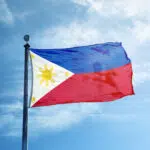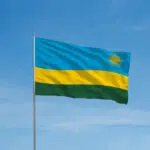National Karl Day is celebrated annually on July 4 and it is, by all means, not a conventional holiday. The name ‘Karl’ is conventionally a masculine name of Germanic origin. It means ‘free man’ and is commonly found in individuals of German, Dutch, Scandinavian, and Slavic origin. It is closely related to the names ‘Carl’ and ‘Charles.’ Perhaps one of the most famous instances of someone with this name was Emperor Charlemagne, who was also known as Charles I or Charles the Great.
History of National Karl Day
German is a West Germanic language that belongs to the Indo-European language family that is spoken in many parts of the world, specifically concentrated in central Europe. It is one of the official languages of Germany, Austria, Switzerland, Liechtenstein, certain provinces of Italy, Luxembourg, Belgium, and Namibia. It shares several significant commonalities with languages like Dutch, English, Luxembourgish, and Yiddish. German happens to be one of the most widely spoken Germanic languages — the second most, actually.
The language itself has undergone a great deal of transformation over its lifetime. The first time German was seen as an independent language was when the High German consonant shift happened and disguised the language from Old Saxon. Over time, the language morphed into what it considered Middle High German. Though it is commonly dated between 1050 and 1350. Early New High German came next, its development was seen as the beginning of Modern High German. This happened when the German states were still under the Holy Roman Empire, however, the desire for German unification drove the development of a more cohesive written language. The early 20th century saw the standardization of Standard High German, forming the closest base of the German language spoken today.
Through the course of the development of German, names also continuously developed and changed. Karl, for instance, is a conventionally masculine name of Germanic origin. It means ‘free man.’ Despite its German origin, the name is commonly found in individuals of German, Dutch, Scandinavian, and Slavic descent. It is closely related to the names ‘Carl’ and ‘Charles.’ One of the most famous instances of someone with this name was Emperor Charlemagne, who was also known as Charles I or Charles the Great.
National Karl Day timeline
The earliest known name, Kushim, is found inscribed on a clay tablet belonging to the ancient Uruk period.
Christianity spreads across Europe when the emperor Constantine issues the Edict of Milan to declare the religion legal.
Charlemagne becomes the first Holy Roman emperor.
Charlemagne dies of an illness in Aachen, Germany.
National Karl Day FAQs
Is it Karl or Carl?
Both are in use. The spelling depends upon the culture.
Is Karl an Irish name?
It is of Germanic origin as a first name. However, it is a common surname in Ireland.
What does Karl mean in English?
It means ‘free man.’
National Karl Day Activities
Appreciate a Karl
Get in touch with all the people who have this name or surname. Show them your appreciation for them on this day.
Check the etymology of your name
Your name has an origin too. Check out the etymology behind your name.
Read about Charlemagne
If you’re interested in history, read a book about Charlemagne. It is a great way to celebrate this day.
5 Facts About The Name Karl And Its Origin
The Surname
The surname ‘Karl’ first appeared in Aberdeenshire, now known as the Council Area of Aberdeen, in the Grampian region of Scotland.
A popular name
Carl or Karl stayed in the Top 100 baby names for a century (1880—1979).
Louis the Pious
Charlemagne left his empire to his third son, Louis the Pious.
Multiple Marriages
He was married to five different women throughout the course of his life.
Father of Europe
Also known as the ‘Father of Europe,’ Charlemagne established both the French and the German monarchies.
Why We Love National Karl Day
It’s nice to know what names mean
We often only link names to the people we use them to refer to. But we think it’s kind of nice to know what names mean,
A remainder of outmoded words
Certain names are like fossils. They are mere reminders of words long gone from the popular lexicon and changing traditions.
We want to appreciate the Karls we know
We love appreciating people we care for and any excuse to celebrate the Karls in our lives is fine by us! Join us today in celebrating them!
National Karl Day dates
| Year | Date | Day |
|---|---|---|
| 2024 | July 4 | Thursday |
| 2025 | July 4 | Friday |
| 2026 | July 4 | Saturday |
| 2027 | July 4 | Sunday |
| 2028 | July 4 | Tuesday |




















